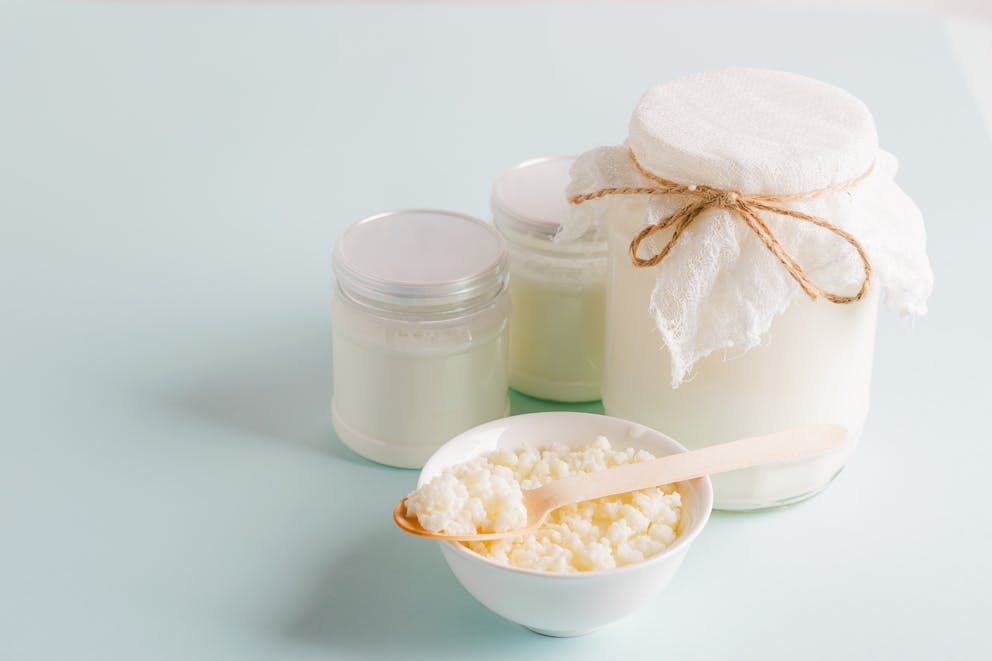How to Use Kefir for Better Sleep

Healthy Keto Acceptable Foods List
Explore a comprehensive list of foods and beverages that align with Healthy Keto®
Identify which foods support fat-burning and metabolic health
Discover nutritious options for fats, proteins, and vegetables to support your health goals
Learn about common foods that aren’t Healthy Keto-approved

Healthy Keto Acceptable Foods List
Explore a comprehensive list of foods and beverages that align with Healthy Keto®
Identify which foods support fat-burning and metabolic health
Discover nutritious options for fats, proteins, and vegetables to support your health goals
Learn about common foods that aren’t Healthy Keto-approved

Healthy Keto Acceptable Foods List
Explore a comprehensive list of foods and beverages that align with Healthy Keto®
Identify which foods support fat-burning and metabolic health
Discover nutritious options for fats, proteins, and vegetables to support your health goals
Learn about common foods that aren’t Healthy Keto-approved

Healthy Keto Acceptable Foods List
Explore a comprehensive list of foods and beverages that align with Healthy Keto®
Identify which foods support fat-burning and metabolic health
Discover nutritious options for fats, proteins, and vegetables to support your health goals
Learn about common foods that aren’t Healthy Keto-approved

Healthy Keto Acceptable Foods List
Explore a comprehensive list of foods and beverages that align with Healthy Keto®
Identify which foods support fat-burning and metabolic health
Discover nutritious options for fats, proteins, and vegetables to support your health goals
Learn about common foods that aren’t Healthy Keto-approved

Healthy Keto Acceptable Foods List
Explore a comprehensive list of foods and beverages that align with Healthy Keto®
Identify which foods support fat-burning and metabolic health
Discover nutritious options for fats, proteins, and vegetables to support your health goals
Learn about common foods that aren’t Healthy Keto-approved

Healthy Keto Acceptable Foods List
Explore a comprehensive list of foods and beverages that align with Healthy Keto®
Identify which foods support fat-burning and metabolic health
Discover nutritious options for fats, proteins, and vegetables to support your health goals
Learn about common foods that aren’t Healthy Keto-approved

Healthy Keto Acceptable Foods List
Explore a comprehensive list of foods and beverages that align with Healthy Keto®
Identify which foods support fat-burning and metabolic health
Discover nutritious options for fats, proteins, and vegetables to support your health goals
Learn about common foods that aren’t Healthy Keto-approved

Healthy Keto Acceptable Foods List
Explore a comprehensive list of foods and beverages that align with Healthy Keto®
Identify which foods support fat-burning and metabolic health
Discover nutritious options for fats, proteins, and vegetables to support your health goals
Learn about common foods that aren’t Healthy Keto-approved

Healthy Keto Acceptable Foods List
Explore a comprehensive list of foods and beverages that align with Healthy Keto®
Identify which foods support fat-burning and metabolic health
Discover nutritious options for fats, proteins, and vegetables to support your health goals
Learn about common foods that aren’t Healthy Keto-approved

How to Read Your Body
Learn to recognize common symptoms and uncover their underlying health issues
Understand the signs of nutrient deficiencies to manage your health
Explore the four metabolic body types and the core factors that influence them
Interpret your body's signals from head to toe to identify potential health concerns

How to Read Your Body
Learn to recognize common symptoms and uncover their underlying health issues
Understand the signs of nutrient deficiencies to manage your health
Explore the four metabolic body types and the core factors that influence them
Interpret your body's signals from head to toe to identify potential health concerns

How to Read Your Body
Learn to recognize common symptoms and uncover their underlying health issues
Understand the signs of nutrient deficiencies to manage your health
Explore the four metabolic body types and the core factors that influence them
Interpret your body's signals from head to toe to identify potential health concerns

How to Read Your Body
Learn to recognize common symptoms and uncover their underlying health issues
Understand the signs of nutrient deficiencies to manage your health
Explore the four metabolic body types and the core factors that influence them
Interpret your body's signals from head to toe to identify potential health concerns

How to Read Your Body
Learn to recognize common symptoms and uncover their underlying health issues
Understand the signs of nutrient deficiencies to manage your health
Explore the four metabolic body types and the core factors that influence them
Interpret your body's signals from head to toe to identify potential health concerns

How to Read Your Body
Learn to recognize common symptoms and uncover their underlying health issues
Understand the signs of nutrient deficiencies to manage your health
Explore the four metabolic body types and the core factors that influence them
Interpret your body's signals from head to toe to identify potential health concerns

How to Read Your Body
Learn to recognize common symptoms and uncover their underlying health issues
Understand the signs of nutrient deficiencies to manage your health
Explore the four metabolic body types and the core factors that influence them
Interpret your body's signals from head to toe to identify potential health concerns

How to Read Your Body
Learn to recognize common symptoms and uncover their underlying health issues
Understand the signs of nutrient deficiencies to manage your health
Explore the four metabolic body types and the core factors that influence them
Interpret your body's signals from head to toe to identify potential health concerns

How to Read Your Body
Learn to recognize common symptoms and uncover their underlying health issues
Understand the signs of nutrient deficiencies to manage your health
Explore the four metabolic body types and the core factors that influence them
Interpret your body's signals from head to toe to identify potential health concerns

How to Read Your Body
Learn to recognize common symptoms and uncover their underlying health issues
Understand the signs of nutrient deficiencies to manage your health
Explore the four metabolic body types and the core factors that influence them
Interpret your body's signals from head to toe to identify potential health concerns
If you’re having trouble falling asleep, try drinking kefir before bed. This tasty, natural remedy can enhance your sleep quality and also improve your gut health.
Kefir is similar to yogurt—but it's even better for you! Kefir contains a lot more microbes than yogurt and contains tons of beneficial bacteria for your gut microbiome.
Kefir supports a healthy immune system, reduces stress, and supports healthy sleep patterns. Let’s take a look at the amazing benefits of using kefir for sleep.

What is kefir?
Kefir is a fermented drink made from milk. It’s similar to yogurt but has a thinner consistency. Kefir contains five times more microbes than yogurt, and the majority of them can survive your stomach acid.
Kefir is derived from the Turkish word keyif, which means to “feel good after eating.”
Not only does kefir contain friendly bacteria, but it also contains friendly yeast. The good bacteria and yeast in kefir are an excellent combination for a healthy microbiome.
Watch this video to learn more about kefir and how it can support a healthy sleep-wake cycle.
Is kefir keto-friendly?
As long as it doesn’t contain any added sugars, kefir is 100% keto-friendly. Kefir is high in fat and protein and low in carbohydrates. Adding kefir to your diet can greatly improve your health and well-being—and it can even promote weight loss.
You can even make keto-friendly kefir at home. It’s surprisingly easy! You can purchase active cultures known as kefir grains here.
To make your own kefir, combine one tablespoon of kefir grains with two cups of goat’s milk and allow it to sit at room temperature for 24 hours. Although goat’s milk is preferable, cow’s milk will work too.
If you want to let your kefir sit out a bit longer, the flavor will be slightly more sour. This decreases the lactose and increases the lactic acid. Kefir grains can also be reused!

How to use kefir to get better sleep
Although serotonin is typically associated with your brain, 90 percent of all the serotonin in your body comes from your gut microbes.
Serotonin is the “feel-good” hormone that helps improve your mood, reduce stress, and promote healthy sleep patterns.
Kefir provides microbes that can produce the hormone melatonin directly, which can positively affect your ability to fall asleep. Kefir also makes microbes that make the amino acid tryptophan. Tryptophan is converted into serotonin, which is then turned into melatonin.
Kefir is a great source of bioavailable calcium. Drinking kefir also helps you get to sleep and stay asleep.
Microbes in kefir make vitamin B1 (thiamine) which helps reduce stress. Oftentimes, reducing stress can make it easier to relax your mind and fall asleep.
Lactobacillus bacteria found in kefir help reduce cortisol. Because cortisol is the stress hormone, it can disrupt healthy sleep cycles.
A half-cup of kefir before bed promotes better sleep, supports gut health, and minimizes stress.
This study examines the effects of kefir on sleep quality for postmenopausal women. It was determined that kefir has positive effects on sleep disturbances, depression, and quality of life.

More health benefits of kefir
Adding kefir to your diet doesn’t just improve sleep. Consuming kefir has a wide range of other health benefits you won’t want to miss out on.
Here are some powerful health benefits of kefir:
Decreases liver fat
Helps prevent bloating/gas
Decreases constipation
Improves immune system function
Decreases allergy symptoms
Promotes normal blood sugar levels
Supports healthy blood pressure
Decreases bad bacteria in the body
Anti-inflammatory properties
Supports circadian rhythm (body clock)
Contains magnesium and phosphorus
Fermented foods like kefir help to balance the good and bad bacteria in your digestive system.
Drinking kefir daily as part of a healthy diet can greatly improve gut health. A healthy gut microbiome is important for almost all of your bodily functions.

Who should avoid kefir?
If you’re lactose intolerant, foods like yogurt, cottage cheese, and other dairy products will likely cause you some digestive upset—but what about kefir?
Kefir is often tolerated by people who are lactose intolerant, even when it’s made from dairy. The bacteria in kefir eat the lactose and turn it into lactic acid, leaving very little lactose in the finished product.
If kefir causes you digestive upset, you can still enjoy the benefits of kefir without the dairy. Coconut milk kefir or water kefir before bed can help you feel sleepy without any digestive troubles.
Key takeaways
Kefir contains live bacteria that are incredibly beneficial for your gut microbiome and digestive system. A healthy gut is crucial for quality sleep.
Kefir is a keto-friendly food that the whole family will love. Try having kefir before bed for better sleep tonight!
FAQ
1. Is it okay to drink kefir before bed?
Yes! Try drinking kefir before bed to improve sleep quality and for its other numerous health benefits.
2. How much kefir should I drink to sleep?
A half-cup of kefir before bed can help improve sleep.
3. Is there melatonin in kefir?
Kefir contains important microbes that make melatonin. It also contains microbes that make the essential amino acid tryptophan, which is converted into melatonin.
4. Does kefir reduce anxiety?
Kefir feeds your gut microbes that are responsible for making 90 percent of serotonin in the body. People often associate serotonin with your brain, but your microbes make most of it!
Because serotonin is the “feel-good” hormone, increasing your serotonin levels can greatly reduce stress. The lactobacillus found in kefir and other fermented foods also helps to reduce cortisol, the stress hormone.
5. Is kefir keto-friendly?
Kefir is rich in healthy fats and probiotics, making it an excellent food for the keto diet. Avoid drinking kefir with added sugars! Sugary foods will kick you out of ketosis.
6. Why does kefir help with sleep?
Kefir supports healthy sleep patterns for a number of reasons. Kefir helps to reduce stress and also contains microbes that produce melatonin and tryptophan.
7. What is kefir?
Kefir is a fermented drink made of milk or water. Kefir contains many different types of friendly bacteria and friendly yeast that are incredibly beneficial to your gut. It’s similar to yogurt—however, kefir has more health benefits.
8. When should I drink kefir to help with sleep?
Drinking kefir right before bed can help you get a good night’s sleep.
9. Which is healthier: kefir or yogurt?
Both kefir and yogurt contain probiotics which improve gut health and provide numerous other health benefits, but kefir is better for your overall health. Kefir contains 12 to 15 strains of probiotics, while yogurt contains only 3 to 5.
Yogurt cleans the colon and provides food for the microbes, while kefir grows new colonies of friendly bacteria and yeast. Kefir adds far more nutrients to the body than yogurt and is one of the best remedies for candida.
10. Can I have kefir if I’m lactose intolerant?
Yes! The lactic acid bacteria in kefir eat the lactose from the milk. Most people who are lactose intolerant do not have trouble digesting kefir.
Kefir can also be made with coconut milk or water! Water kefir and coconut milk kefir provide all of the health benefits of kefir without dairy.
Previous blog
Vitamin D vs. Vitamin D3: What’s the Difference?Tags

Popular
08/21/2024
55K views
02/23/2025
46.3K views
11/18/2024
277.5K views
03/18/2024
11/21/2022




